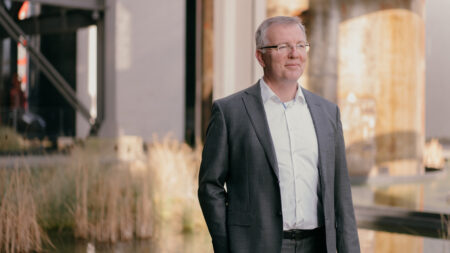Clean technologies, circular economy, sustainability… These concepts may have seemed like a fad a few years ago, but today – and increasingly so in the future – they are absolutely essential tools for building a more sustainable and resilient society.
Several years ago, Luxembourg took the decision to orient its economic developments towards sustainability. The country wishes to position itself as one of the most proactive players in this field. It has developed a European standard for providing circular data on products, for example, as well as models aimed at assessing the impact of clean technologies, from the development and production of technologies to their use and the treatment of products at the end of their life.
As a leading centre for green and sustainable finance, Luxembourg is also a promising test bed for emerging circular economy business models.
This proactive approach led to the presentation of a national circular economy strategy in early 2021, supported by the Ministry of the Economy, the Ministry of Environment, Climate and Sustainable Development and the Ministry of Energy.
“Thanks to its entrepreneurial tradition, our country is well placed to trigger successful pilot projects by using a smart combination of regulatory, financial and communication tools to provide long-term visibility for companies investing in circular business models and products,” explains Minister of the Economy Franz Fayot. “The national circular economy strategy will allow Luxembourg to take a new step in its development as a living laboratory and European centre for circular businesses.”
Beyond the circular economy strategy, Luxembourg is firmly committed to supporting an economy that is both competitive and long-term sustainable. The country gives strong priority to fulfilling the EU goal of becoming climate neutral by 2050.
A dedicated cluster
The Grand Duchy is investing in the means and infrastructure needed to become a leading circular economy hub. Similarly to digital technologies, clean technologies have become a transversal topic that is relevant for all economic sectors where all types of companies will make circularity, sustainability and carbon neutrality a main focus.
In this context, the Luxembourg CleanTech Cluster, managed by the national innovation agency Luxinnovation, also plays a key role in implementing circularity principles within companies, mainly in the construction sector.
Established in 2009, it promotes process, product and service innovation as well as business relations and cross-sectoral cooperation. It focuses on clean and sustainable technologies, in particular water, waste and energy.
The cluster also contributes to the diversification of the activities of Luxembourg companies. In order to help companies acquire and develop new skills, it initiates public-private partnerships aimed at developing new collaborative projects of common interest and facilitates the establishment of networks including public and private organisations at the national and international level.
Both virtual and physical
One of the flagship projects in which the cluster is involved is the creation of a deconstruction platform that is both physical and virtual. “We would like to see that for old buildings, we no longer talk so much about waste as about products and materials. Virtual and physical are necessary and complement each other,” says Charles-Albert Florentin, manager of the Luxembourg CleanTech Cluster.

Water management is also one of the cluster’s concerns. “Due to climate change, we will eventually have to redesign the infrastructure in our cities – raised pavements, retention basins, reuse of grey water, more resilient networks, etc.,” warns Mr Florentin. “It will be a question of putting in place more decentralised treatment solutions and intelligent network management systems making it possible, for example, to predict and manage consumption peaks and emergency situations.”
Source: https://www.ft.com/partnercontent/luxinnovation/doing-business-in-a-sustainable-way.html


